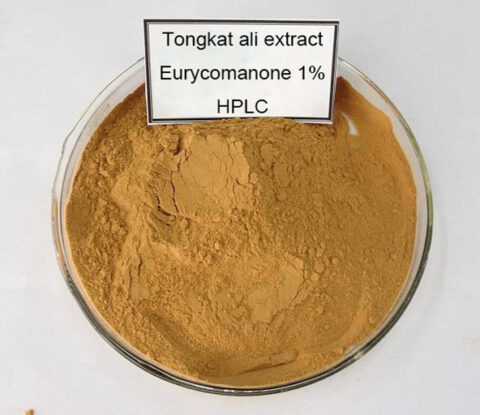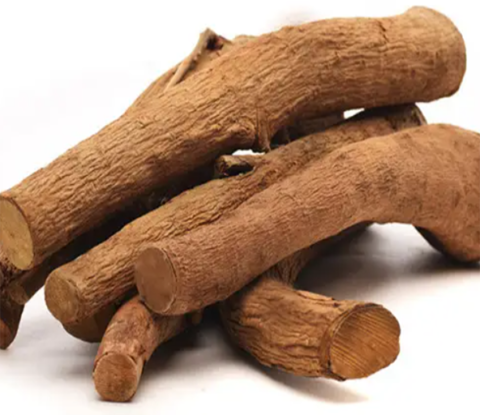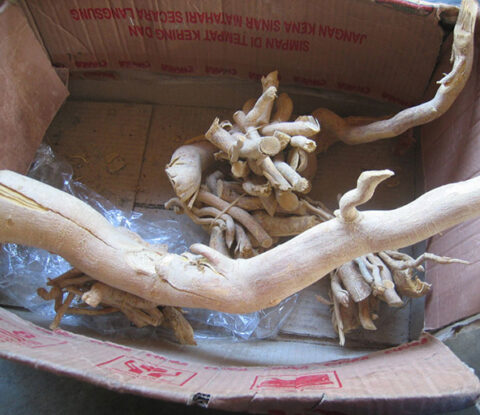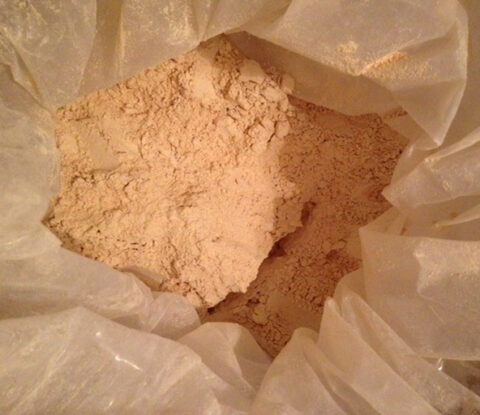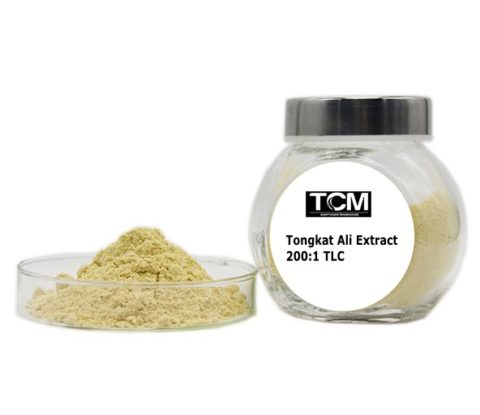
Tongkat Ali Extract Eurycomanone 1%, 2%, 3%, 5%,10% HPLC
The entire plant of Tongkat Ali can be used as medicine, but the medicinal part mainly comes from the roots. Its extract also has various effects such as improving physical strength, reducing fatigue, and killing bacteria. It is one of the most precious applied plant medicines in Southeast Asia, and together with bird's nest and tin ware, it is known as Malaysia's three national treasures.
【Product Name】: Tongkat Ali Extract Eurycomanone 1%, 2%, 3%, 5%,10% HPLC
【Extraction Source】: The dry rhizome of Eurycoma Longifolia Jack, a bitter wood plant in Malaysia.
【Herb Brief 】: Eurycoma Longifolia Jack is a wild shrub plant that grows in the humid sandy soil of the primitive tropical rainforest near the equator in Southeast Asia, with a maturity period of generally more than 5 years. The tree is 4-6 meters tall, with a height of up to 12 meters, a trunk diameter of 8-10 centimeters, and a thickness of up to 15 centimeters. The branches are almost unbranched, and the leaves grow in umbrellas. Its roots are not forked and can reach a depth of up to 2 meters when entering the ground.
【Specification】: Eurycomanone 1%, 2%, 3%, 5%,10%
【Test method】: HPLC
【Appearance】: Brown yellow powder
【Mesh size】: 80-100 Mesh.
【Water Solubility】: Easily soluble in water
【 Main distribution】: Generally only distributed in tropical and rainy countries, originating from Malaysia.
【Production process】: Select raw materials, clean raw materials, three times of extraction, concentration, spray drying into powder, screening and sterilization, packaging.
【Storage】: Place in a cool, dry, dark and high temperature place.
【Packaging 】: Double-layer plastic bags inside and 25kg cardboard drums outside.
【Shelf life】: 24 months since manufacturing date.
【MOQ】: 1 kilogram
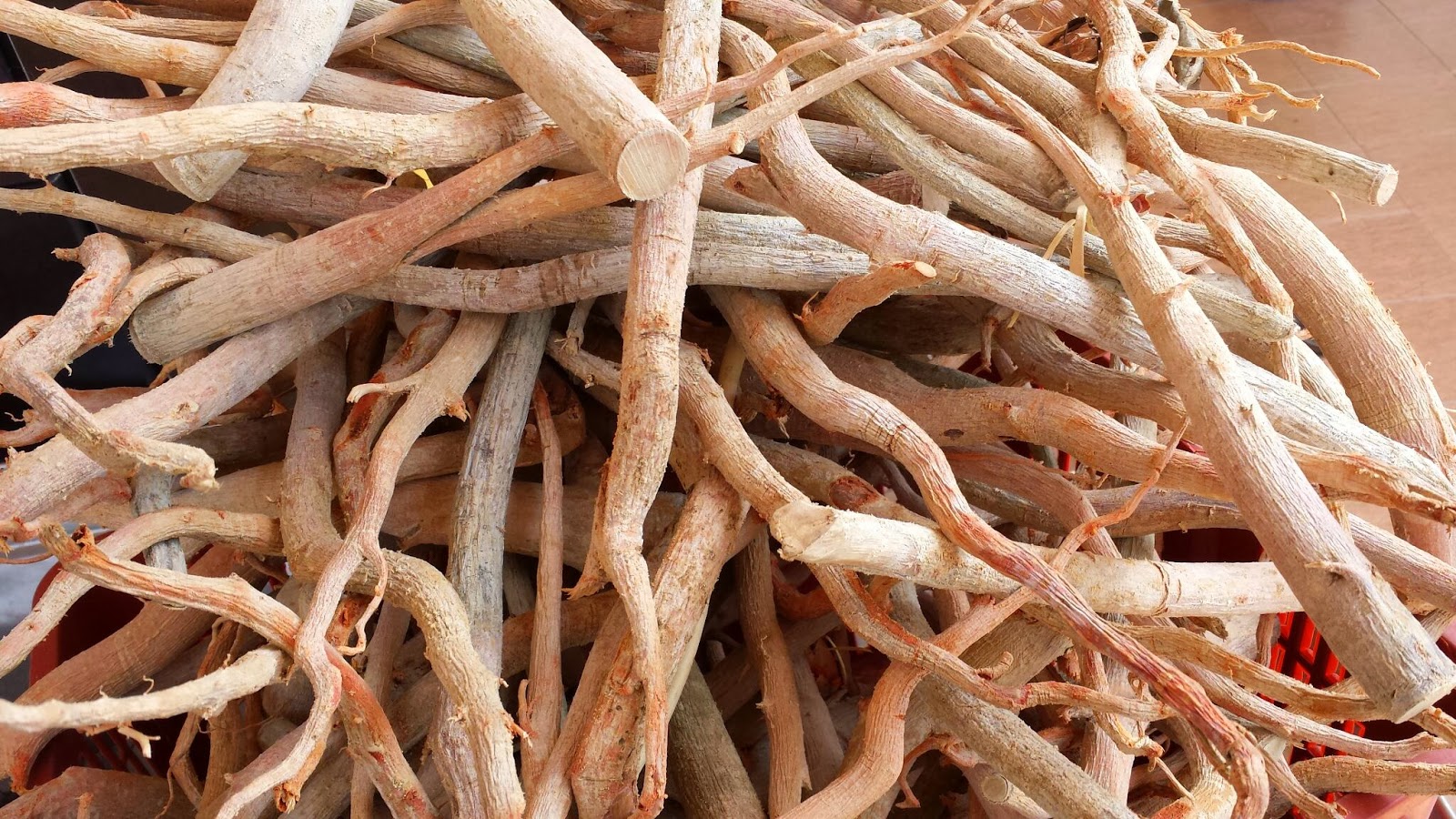
Background and Overview of Tongkat Ali Extract Raw Materials
Tongkat Ali Extract is a plant of the bitter wood family, mainly grown in Southeast Asian countries such as Malaysia, Indonesia, and Vietnam, but less in China, mainly distributed in Taiwan and other regions. Known as Malaysian ginseng, natural Viagra, etc. in its origin, it is often used as a medicine with its roots, which have the effects of anticancer, anti malaria, and improving male sexual dysfunction. Tongkat Ali extract also has multiple effects such as enhancing physical strength, reducing fatigue, sterilization, anti ulcer, and lowering blood pressure, making it one of the most precious applied plant medicines in Southeast Asia. The entire plant of Tongkat Ali can be used as medicine, but the medicinal part mainly comes from the root. As a traditional medicinal herb and tonic in Southeast Asia, it has a history of hundreds of years and can be used as both a single ingredient medicine and an important ingredient in prescriptions. The
Preparation Method of Tongkat Ali extract
(1) Weigh 15kg of Tongkat Ali root medicinal material, slice it, add 20 times the amount of water to reflux and extract twice, with each extraction time of 2 hours. Combine and filter the extract to obtain Tongkat Ali extract;
(2) The Tongkat Ali extract obtained from the first step was coated with AB-8 macroporous resin (column volume 20L/BV), and then eluted with 5BV water and 4BV 30% ethanol. The 30% ethanol eluate was collected, concentrated under reduced pressure, and dried to obtain 120g of Tongkat Ali extract.
The Determination Method for the Content of Eurycomanone in the Tongkat Ali Extract
Using Agilent 1260 Infinity Series high-performance liquid chromatography and ELSD detector; The chromatographic column is CosmosilAR-II-C18 (4.6mm × 250mm, 5 μ m) ; The mobile phase is water (A) – methanol (B), gradient elution (0-20min, 20% B → 40% B; 20-25min, 40% B → 95% B); The flow rate is 1mL • min-1, and the column temperature is 35 ℃. The external standard two point method was used to determine the content of eurycomanone in the sample of tongkat ali extract.
Pharmacological effects of Tongkat Ali extract
At present, various studies have been conducted on Tongkat Ali, and the results show that Tongkat Ali has good effects on kidney health, enhancing immunity, promoting fertility, treating prostatitis, and combating malaria. The British Journal of Sports Medicine reported that the effect of tongkatali essence improved muscle mass by 5% in five weeks. This result was obtained from a double-blind controlled scientific trial treatment group, and no obvious side effects were found in the control group. Research has found that Alibaba can improve the quality of sperm, increase the number, size, and movement speed of sperm. In the laboratory white mouse experiment, the volume of offspring produced by female mice who took the medication doubled compared to those produced by female mice who did not take the medication. Researchers speculate that this may be caused by female mouse egg division, twinning, and multiple ovulations. Their conclusion from the experiment is that stronger fertility is entirely a result of improved sperm quantity and quality.
In addition, Ali’s effect on improving fertility is also very significant. In animal experiments, male offspring have increased by three times compared to female offspring. A study jointly conducted by a research institution funded by the Malaysian government and the Massachusetts Institute of Technology found that Ali contains powerful anti-cancer and anti HIV (AIDS) ingredients. According to Abdul RazakMohdAli, director of the Malaysian Forest Research Institute, its chemical components are more effective than existing anticancer drugs. In addition, other experiments have also shown that the Auassinoid chemical components it contains can resist tumors and fever.
Cheng Bei et al. found that the low, medium, and high-dose groups of Tongkat Ali can prolong the swimming time of mice under weight, improve their exercise ability, and the high-dose group has the best anti fatigue effect. Each dose group of Tongkat Ali extract can significantly increase the content of liver glycogen in mice, significantly increase the activity of serum lactate dehydrogenase in mice, accelerate the clearance and metabolism of excessive lactic acid, thereby delaying the occurrence of fatigue and accelerating the elimination of fatigue. Tongkat Ali extract can improve the exercise load capacity of mice and prevent the body from experiencing fatigue. Both the medium and high-dose groups of Tongkat Ali extract can increase hemoglobin content, indicating that one of the mechanisms by which Tongkat Ali extract enhances its anti fatigue effect is by increasing the hemoglobin content in the blood of mice.
Liang Peng et al. found that chloroform extract and n-butanol extract can both reduce serum uric acid levels, and their uric acid lowering effect is equivalent to that of allopurinol. Both chloroform extract and n-butanol extract can reduce serum creatinine levels, and n-butanol extract has a stronger effect on reducing creatinine than chloroform extract. The chloroform and n-butanol groups have less renal damage than the allopurinol group in rats, indicating that chloroform extract and n-butanol extract have a certain protective effect on the kidneys of rats.
In the process of purine metabolism in the body, xanthine oxidase is the only key enzyme in the production of uric acid, and the decrease in its activity indicates a slower rate of uric acid production in the body. Both chloroform extract and n-butanol extract can inhibit serum XOD activity, and the inhibitory effect of n-butanol extract is stronger than that of chloroform extract. Further research is needed to determine whether the mechanism of action of these two extracts is related to the inhibition of xanthine oxidase activity. At the same time, the chemical composition of Tongkat Ali is mainly composed of diterpenoids and iron shimiketone alkaloids with bitter wood bitterness as the skeleton. Chloroform extract and n-butanol extract have good uric acid lowering effect, while alkaloids have high solubility in chloroform and n-butanol. It is speculated that the main component in Tongkat Ali that plays a uric acid lowering role is alkaloids, but its basis still needs further verification.
References
[1] Ling Min, He Chunmei, Gao Jianmin, Wang Hongfeng. Research progress on the medicinal plant Tongkat Ali [J]. Guangdong Forestry Science and Technology, 2013,29 (06): 66-73
[2] Liang Peng, Zhu Libin, Chen Ying, Long Xiaoyan, Chen Qian, Zhou Zhao, Huang Zhijun. Experimental study on the anti hyperuricemia effect of different extracts from Tongkat Ali [J]. Chinese Pharmacology, 2018,21 (02): 224-227
[3] CN201510906420.0 A Tongkat Ali extract and its preparation method
[4] CN201410475535.4 New uses of Tongkat Ali extract
